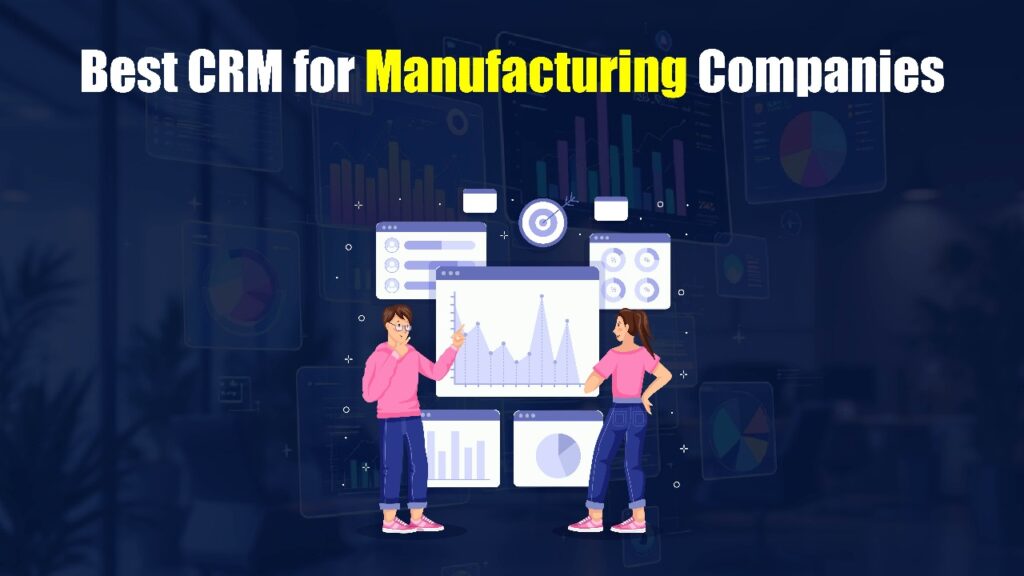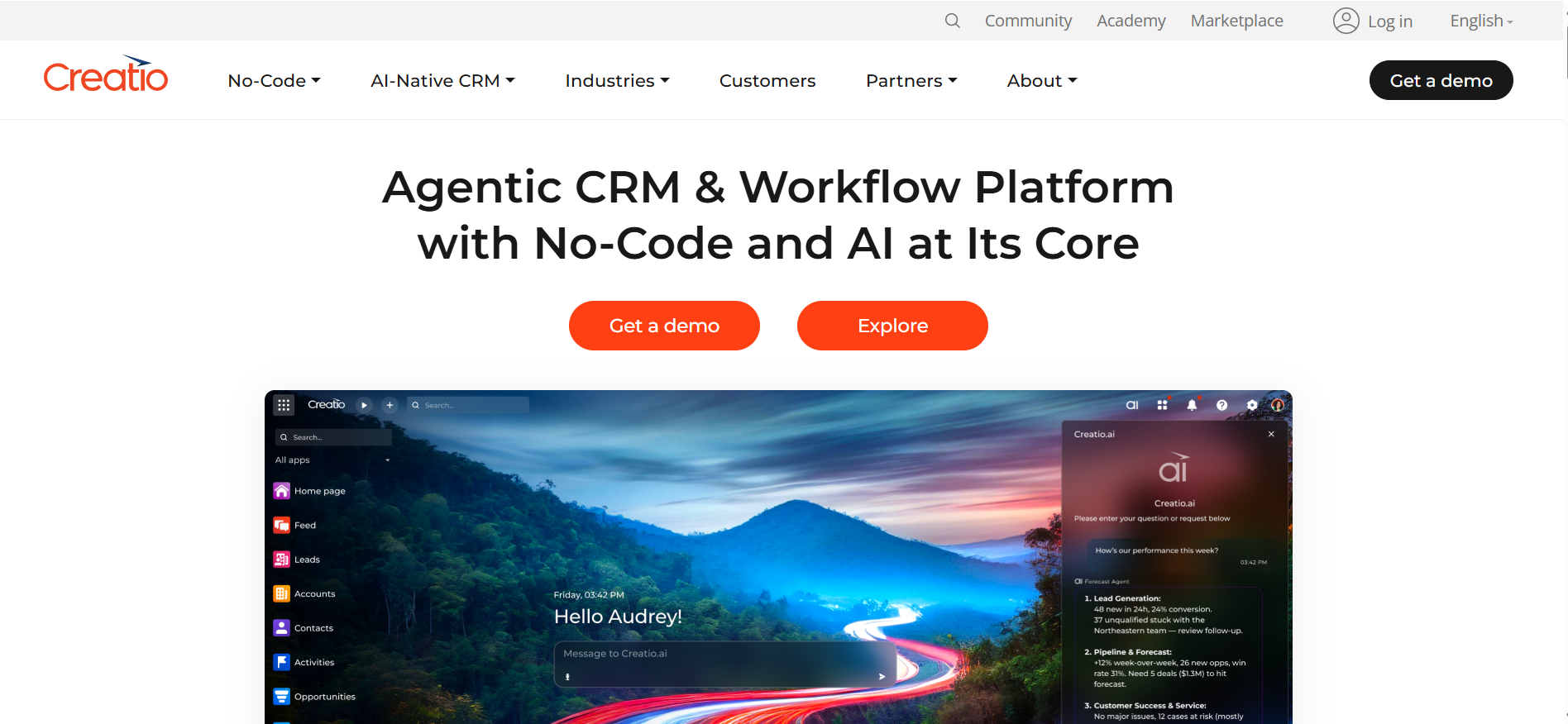Working in manufacturing means managing long sales cycles, distributors, complex product configurations, and after-sales service all at the same time. If you’ve ever felt like your customer data, orders, and production teams are disconnected, you’re not alone. Well done for looking for a better way, because the right CRM can unify sales, service, and operations reduce friction and drive growth. Sounds good, right? You are at the right place.
In the manufacturing sector, customer relationships are deeply tied to product specs, planning, and distribution networks. A CRM tailored for manufacturing brings together quotes, order history, partner performance, and service records. This helps both sales and operations teams stay aligned, improve forecast accuracy, and build stronger long-term relationships with clients and distributors.
Before diving into the best CRMs, let’s break down what makes a CRM “manufacturing-friendly,” how to evaluate one for your business, and why it’s so critical for industrial growth.
What Is a CRM for Manufacturing?
A CRM for manufacturing is a system that supports not only typical sales and marketing tasks but also handles manufacturing-specific workflows. It connects customer interactions to product catalogs, order volumes, production timelines, and post-sales service. It also often integrates with ERP or supply-chain systems to enable real-time visibility into inventory, assets, and partner networks.
These CRMs are built to manage complex B2B sales cycles, multi-level approvals, custom product configurations, and long-term contracts. They help manufacturers by enabling accurate quoting, tracking of service contracts, and managing distributor relationships efficiently.
Why Manufacturing Companies Need a CRM
Manufacturing companies operate in demanding B2B environments where customer acquisition, order processing, and production planning must be tightly coordinated. A CRM ensures that sales, production, and customer service are all aligned around real data. This alignment reduces missed orders, improves demand forecasting, and increases customer satisfaction.
Furthermore, by using CRM data to inform production planning, companies can minimize inventory overstock or shortages. Historical order data and forecasted sales helps production teams make smarter decisions, reducing waste and increasing efficiency.
How to Choose the Right CRM for Manufacturing
When selecting a CRM for a manufacturing business, start by identifying your core needs: Do you need order-tracking, partner management, or service contract automation? Make sure the CRM integrates with your ERP or supply-chain system.
Look for features like custom product catalogs, quote-to-order workflows, distributor portals, and AI-powered forecasting. These are critical for manufacturing sales cycles. Also evaluate reporting capabilities to track manufacturing-specific KPIs like order volume, lead times, and service contract renewals.
Budget and deployment model matter too. Larger manufacturers may need enterprise-grade CRMs with deep customization (like Salesforce or NetSuite), while smaller or mid-sized companies might prefer simpler, more affordable systems. Also consider the cost and effort of implementation — a highly specialized CRM may require technical resources.
Top CRMs for Manufacturing Companies
Here are 10 of the best CRM platforms tailored for manufacturing companies:
- Salesforce
- Microsoft Dynamics
- Lark
- Nutshell
- Creative
- SugarCRM
- Freshsales
- Salesmate
- Nimble
- Insightly
1. Salesforce
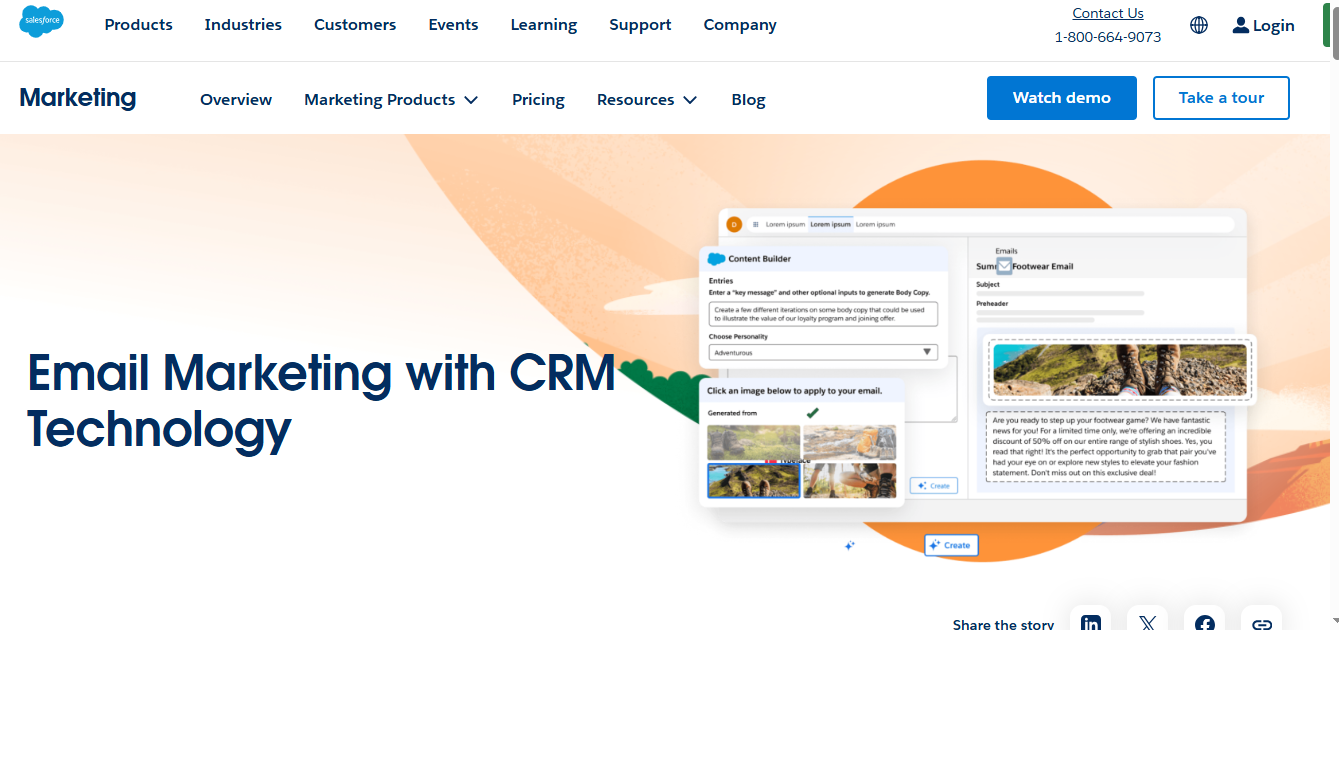
Review
Features
- Manufacturing Cloud
- Sales automation
- Account-based management
- CPQ (Configure, Price, Quote)
- Partner relationship tools
- Inventory and forecasting insights
- AI-driven analytics
Pros
- Extremely customizable
- Best-in-class automation
- Deep manufacturing features
- Excellent analytics
Cons
- Very expensive
- Requires training to use properly
Final Verdict
2. Microsoft Dynamics 365
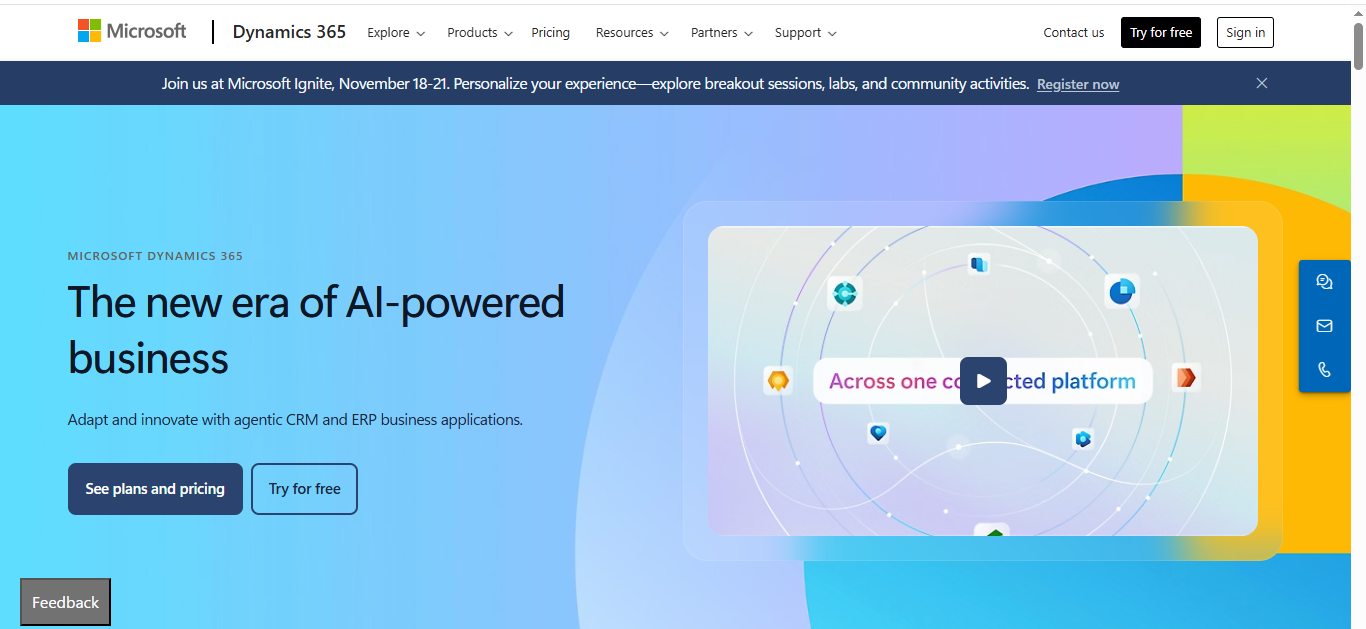
Review
Microsoft Dynamics 365 offers a seamless ecosystem for manufacturers looking to combine CRM and ERP capabilities. It improves production planning, order management, and customer service under a single system. Automation features help streamline repetitive communication, manage supply-chain updates, and track distributor performance. This integration ensures that sales, operations, and finance teams work with the same accurate data, reducing errors and delays.
Manufacturers appreciate Dynamics because it connects CRM, accounting, inventory, and operational workflows in one platform. Real-time dashboards and reporting give visibility into orders, production, and customer interactions. The system supports complex product hierarchies, multi-tiered sales channels, and long sales cycles. Overall, Dynamics 365 helps manufacturers improve efficiency, collaboration, and decision-making across the organization.
Features
- Sales + ERP integration
- Inventory and production management
- Workflow and process automation
- Customer service tools
- Supply chain visibility
- AI forecasting
Pros
- Deep integration with Microsoft products
- Works well for complex operations
- Great analytics and reporting
Cons
- Setup is time-consuming
- Expensive for small teams
Final Verdict
3. Lark CRM
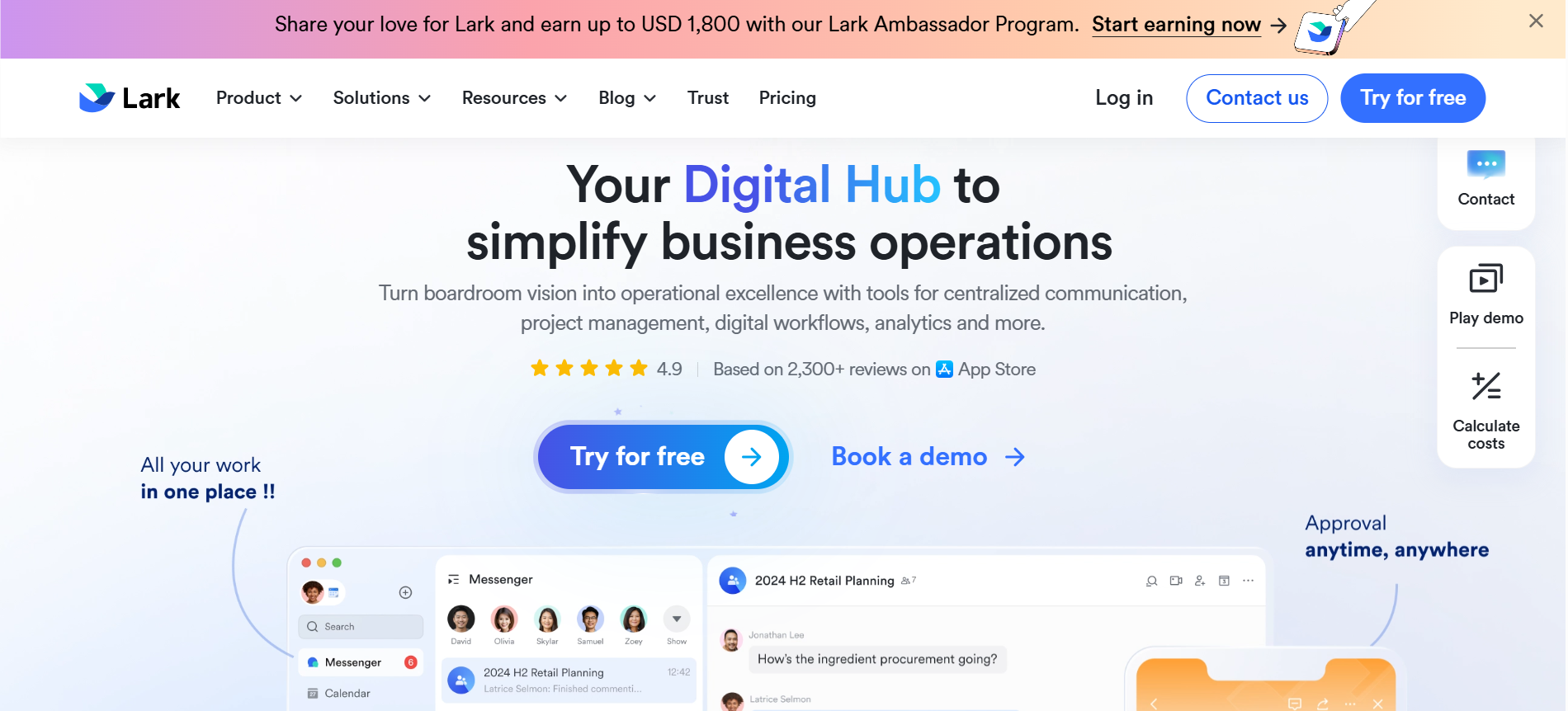
Review
Lark CRM is a modern, collaborative platform designed for manufacturing teams that need communication and workflow management in a single system. Beyond just tracking customers, it helps coordinate production updates, monitor order status, and manage internal approvals. Teams can also streamline supplier communication and ensure everyone stays aligned across departments. Its intuitive interface allows quick adoption and minimal training for employees.
The platform’s built-in chat, documents, and automation tools create a lightweight but highly effective environment for cross-department collaboration. Manufacturing teams can manage tasks, share updates, and track workflows in real time. This reduces miscommunication and ensures that production and sales remain in sync. Overall, Lark enhances efficiency and team coordination for mid-sized and small manufacturers.
Features
- CRM database
- Collaboration tools (chat, docs, meetings)
- Task and workflow automation
- Pipeline tracking
- Mobile accessibility
- Team analytics
Pros
- Very easy to use
- Great for collaboration
- All-in-one communication platform
Cons
- Not as advanced as enterprise CRMs
- Limited manufacturing-specific automation
Final Verdict
4. Nutshell CRM
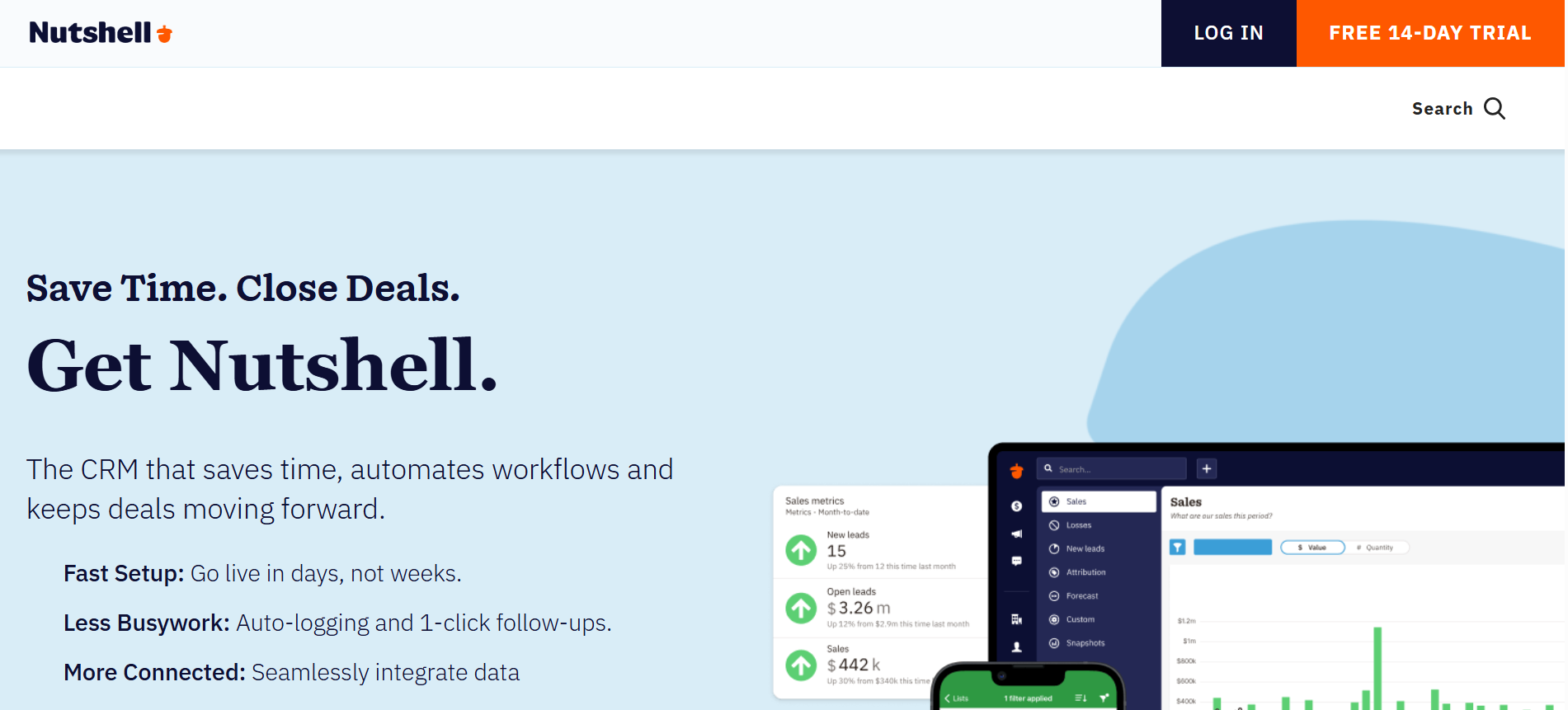
Review
Nutshell CRM provides a simple yet powerful solution for manufacturing teams, supporting workflows such as lead tracking, distributor management, and quote handling. It allows teams to organize customer information, monitor interactions, and streamline follow-ups efficiently. The platform ensures that important leads and orders are never missed, keeping sales processes consistent. Its easy-to-use interface makes onboarding fast and accessible for all team members.
Nutshell’s reporting tools give manufacturers clear insights into sales performance, product demand, and team activity. Automation features reduce repetitive tasks, freeing up time for higher-value work. It provides sales visibility without the complexity of large enterprise systems, making it ideal for small to mid-sized manufacturers. Overall, Nutshell CRM helps teams stay organized, proactive, and productive.
Features
- Pipeline and contact management
- Email sequences and automation
- Built-in reporting
- Team collaboration tools
- Integrations with marketing software
Pros
- User-friendly
- Affordable for small manufacturers
- Helpful automation for sales teams
Cons
- Lacks deep manufacturing modules
- Limited customization on lower plans
Final Verdict
5. Creatio CRM
Review
Features
- Low-code workflow builder
- Sales and pipeline automation
- Customer service tools
- Production and supply chain workflow setup
- Reporting and dashboards
- Marketing automation
Pros
- Highly customizable
- Great automation engine
- Works well for mid-sized manufacturers
Cons
- Requires time to set up
- Not ideal for beginners
Final Verdict
Creatio CRM is perfect for manufacturing companies that require a tailored solution with strong automation. It allows teams to design and customize workflows to match complex internal operations. The platform supports efficiency, collaboration, and process management across departments.
6. SugarCRM
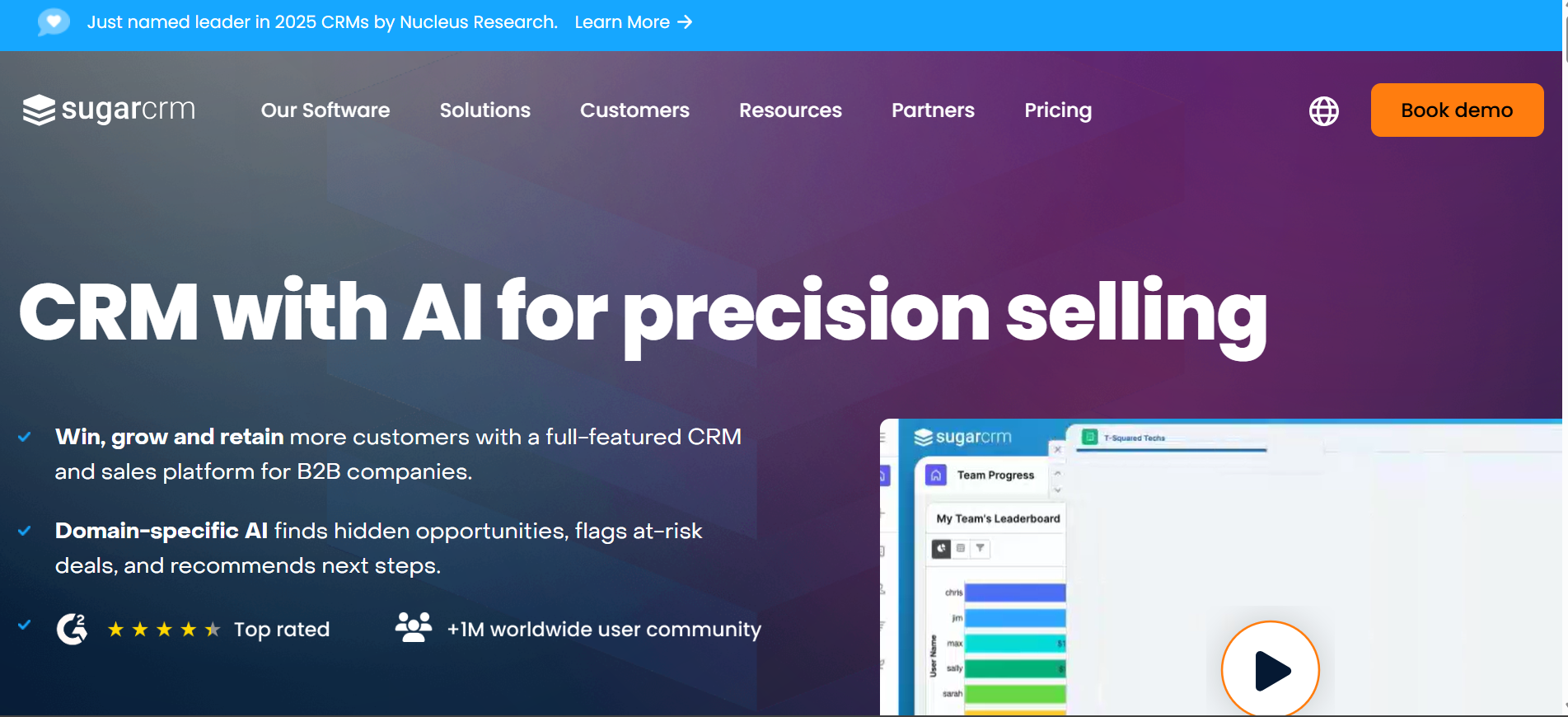
Review
SugarCRM offers a powerful, flexible platform that is well-suited for manufacturers with complex B2B processes, recurring orders, distributor networks, and long-term agreements. Its system allows sales and operations teams to model multi-step sales cycles, manage product catalogs, and align pipeline data with manufacturing forecasts. This level of customization helps manufacturers avoid overpromising and ensures that agreements are realistic and trackable.
In addition, SugarCRM supports deep account and opportunity management by letting users analyze relationships with multiple stakeholders within each customer, which is critical in manufacturing with large distributors or OEM clients.
Features
- Account and stakeholder management
- Custom product catalog and pricing
- Multi-step opportunity management
- Recurring order and subscription support
- Workflow automation for approvals
- Forecasting and pipeline analytics
Pros
- Very customizable for B2B and manufacturing workflows
- Strong visibility into account hierarchies
- Good support for recurring or bulk orders
- Scalable for larger manufacturers
Cons
- Setup and customization require technical resources
- Can be too complex for small manufacturers
Final Verdict
SugarCRM is an excellent choice for manufacturers who need a highly customizable, scalable CRM built around complex sales cycles and long-term customer contracts. It gives full control over workflows, pricing structures, and partner relationships.
7. Freshsales (by Freshworks)
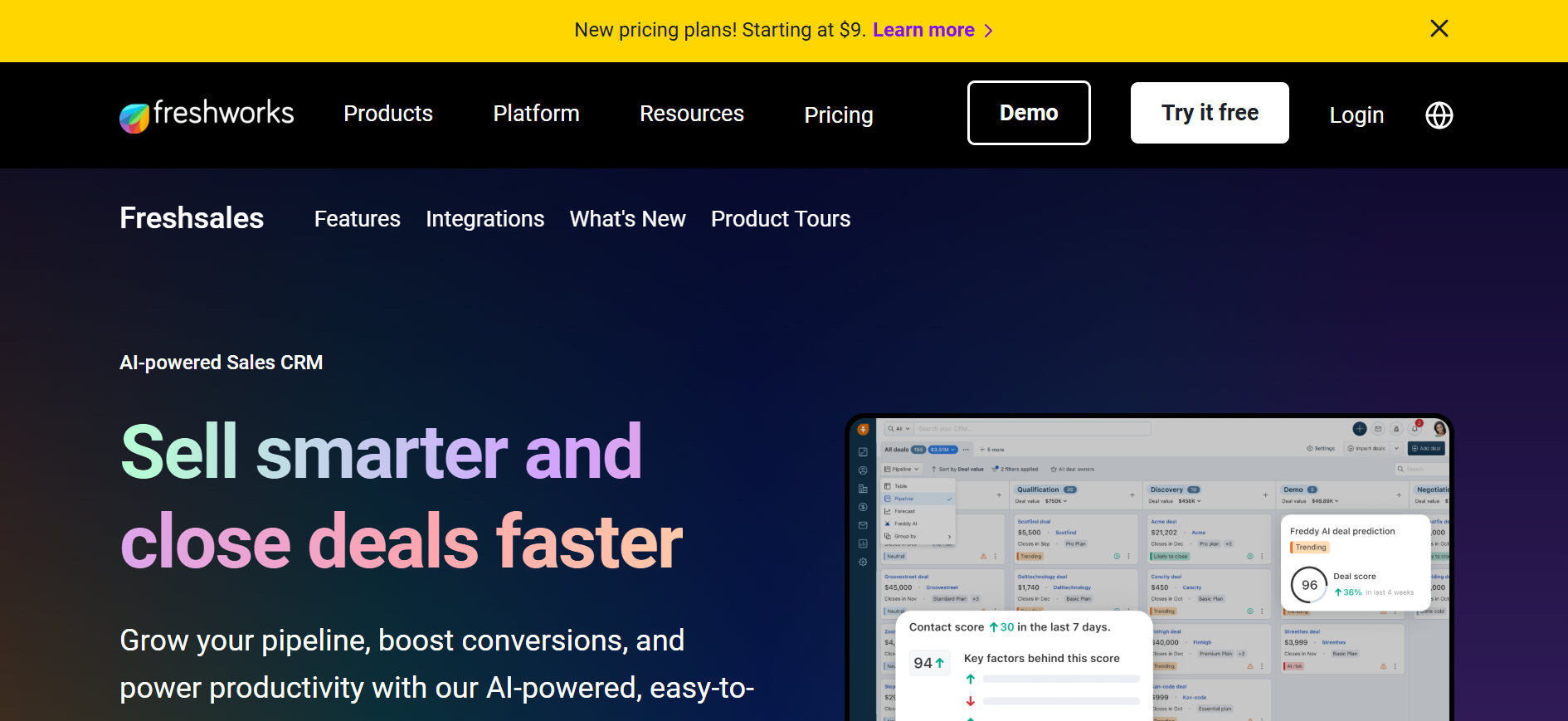
Review
Freshsales is a modern, AI-assisted CRM that helps manufacturing sales teams automate communication and prioritize leads efficiently. Its AI scoring identifies which distributor or client opportunities require the most attention. The system tracks emails, calls, and customer interactions in one unified interface. This ensures that sales teams have a complete view of every prospect and account at all times.
For manufacturers, Freshsales enables reliable follow-ups on new leads and accurate tracking of historical interactions. It ensures consistent communication across long B2B sales cycles and complex industrial deals. Automation reduces repetitive tasks, freeing sales reps to focus on high-value opportunities. Overall, Freshsales improves efficiency, visibility, and decision-making for manufacturing sales teams.
Features
- AI-powered lead scoring
- Email and call tracking
- Deal pipeline visualization
- Workflow automation
- Integration with inventory and ERP systems
- Mobile access and reporting dashboards
Pros
- Easy to use
- Intelligent lead prioritization
- Effective automation
- Good for long sales cycles
Cons
- Limited built-in manufacturing-specific modules
- Advanced integrations may require paid plans
Final Verdict
Freshsales is a smart CRM for manufacturers that want AI-driven insights, strong communication tracking, and straightforward automation. It is especially useful for sales teams managing a mix of distributor and direct clients.
8. Salesmate
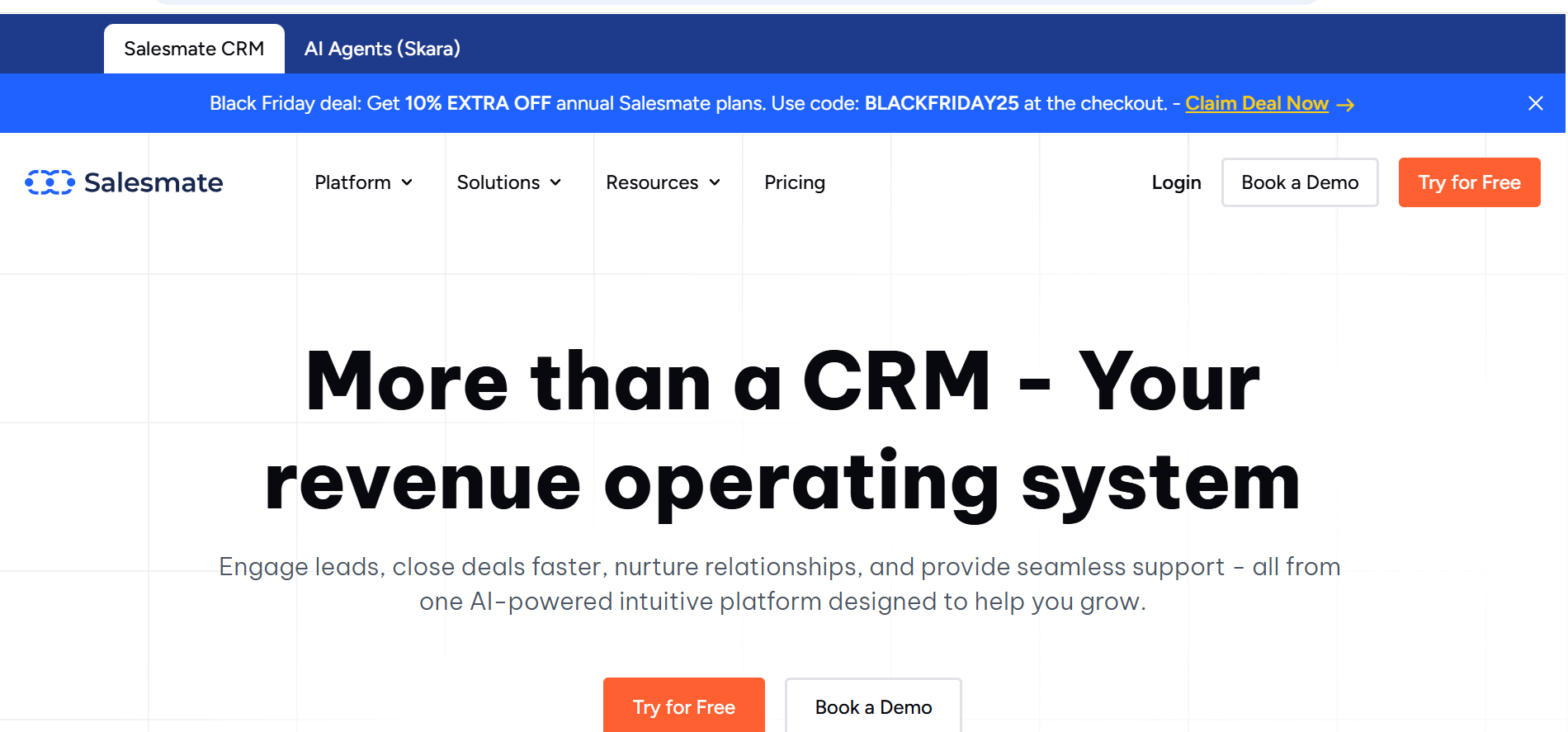
Review
Salesmate is a focused CRM designed to help manufacturing sales representatives manage the complete buyer journey from lead capture to deal closure. It supports email sequences, automated reminders, and pipeline management. This helps sales teams stay on top of customer follow-ups and manage sales cycles more predictably.
In the manufacturing context, Salesmate’s automation ensures that RFQs, quotes, and orders are followed up systematically, reducing delays and missed opportunities. The system is lightweight enough to adopt quickly but powerful enough for serious sales operations.
Features
- Pipeline and deal management
- Email campaign automation
- Task & activity reminders
- Contact & account management
- Custom fields for manufacturing data
- Sales reporting and insights
Pros
- Simple and effective
- Fast onboarding
- Good automation for follow-ups
- Affordable
Cons
- Lacks deep ERP or production integration
- Reporting is basic for complex operations
Final Verdict
Salesmate is an excellent CRM for small to mid-sized manufacturing sales teams. It provides an easy-to-use platform to manage leads, quotes, and customer follow-ups efficiently. The system delivers essential automation and tracking without the complexity of large enterprise CRMs.
9. Nimble
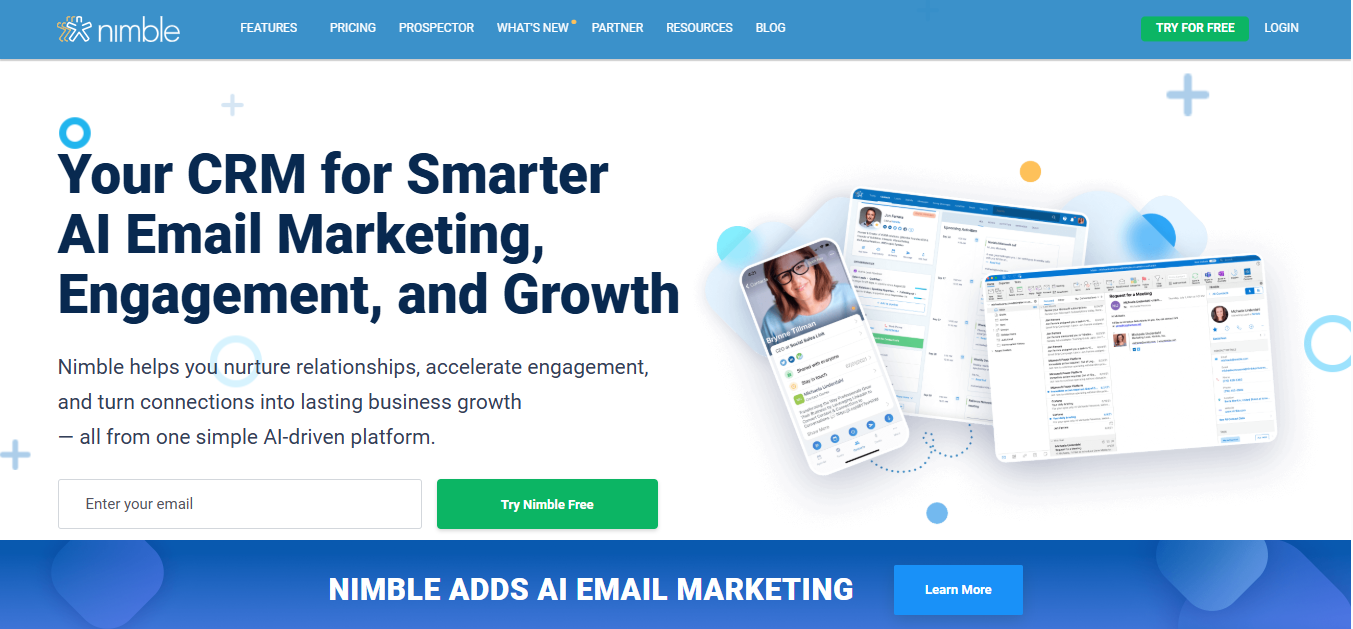
Review
Nimble is a relationship-focused CRM that emphasizes contact management, communication tracking, and social insights. For manufacturers, Nimble is useful in managing distributor partnerships, influencer contacts, and long-term B2B relationships. It helps maintain clean data, automatically logs communication, and surfaces social and professional context about customers and partners.
This CRM is ideal for manufacturing teams that prioritize relationships, networking, and long-term business development over high-volume transactional sales.
Features
- Unified contact and company database
- Automatic email and activity logging
- Social profile enrichment
- Task management and reminders
- Pipeline and opportunity tracking
- Smart lists and segmentation
Pros
- Lightweight and intuitive
- Excellent for relationship management
- Minimal setup and learning curve
- Enriched contact data with social insights
Cons
- Limited advanced automation
- Not built for complex production workflows
Final Verdict
Nimble is ideal for manufacturers looking to strengthen relationships with distributors, B2B clients, and partners. It organizes contact data, keeping it clean, relevant, and actionable for sales and operations teams. The CRM provides insights and tracking without unnecessary complexity, ensuring efficiency in relationship management.
10. Insightly
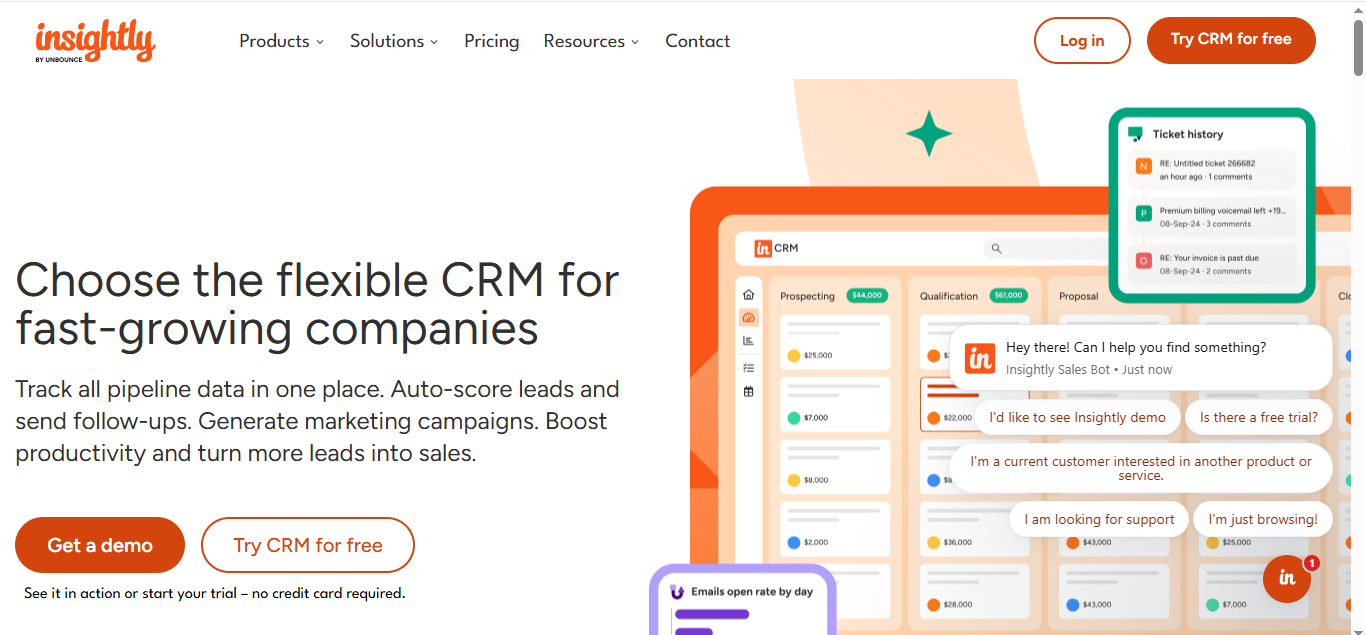
Review
Insightly CRM is a strong hybrid CRM + project management tool that works well for manufacturers managing both sales and post-sale execution. With Insightly, teams can track leads, create quotes, and also oversee production tasks, customer onboarding, and service delivery. This dual functionality reduces fragmentation between sales and operations.
Manufacturers use Insightly to maintain visibility into both the sales pipeline and the project lifecycle — ensuring that orders are fulfilled, service commitments are tracked, and delivery milestones are met all in one system.
Features
- Lead and contact management
- Project and task management
- Sales pipelines and opportunity tracking
- Email integration and automated follow-ups
- Custom fields and objects (for manufacturing data)
- Reporting and dashboards
Pros
- Combines CRM and project management
- Good visibility across sales and execution
- Flexible and customizable
- Ideal for small to mid-sized manufacturers
Cons
- Project and CRM features may feel separate
-
Less powerful than specialized ERP systems
Final Verdict
Insightly is a great choice for manufacturers that want to unify sales and post-sale operations. It ensures that customer relationships and production tasks are aligned, helping teams deliver better on both orders and service commitments.
Conclusion
Choosing the right CRM is a strategic move for manufacturing companies, not just a software decision. These systems help manage complex B2B relationships, track sales pipelines, and connect operational data with customer demands. By using a suitable CRM, manufacturers can streamline communication between sales, production, and distributors, reduce errors, and maintain predictable delivery schedules.
The 10 CRMs featured in this article cater to different manufacturing needs. Some focus on enterprise-level automation and ERP integration, while others prioritize simplicity, collaboration, or relationship management. From Salesforce’s advanced Manufacturing Cloud to Nimble’s relationship-focused interface, each solution provides a distinct advantage depending on company size, sales complexity, and operational requirements. Selecting a CRM that aligns with your workflows improves efficiency, enhances customer satisfaction, and supports long-term growth in the competitive manufacturing industry.
Frequently Asked Questions(FAQs)
Which CRM is best for large manufacturing companies?
CRMs like Salesforce and Microsoft Dynamics 365 are ideal for large manufacturers. They offer deep automation, ERP integration, and advanced forecasting to manage complex sales cycles, distributor networks, and production planning efficiently.
Can small manufacturers benefit from CRM tools?
Yes. Solutions like Nutshell, Salesmate, and Lark provide lightweight, easy-to-use CRMs that streamline communication, track leads, and automate repetitive tasks. These tools help small teams stay organized and improve client management without high costs.
Do these CRMs integrate with manufacturing operations?
Many CRMs, especially Salesforce, Microsoft Dynamics, and SugarCRM, integrate with ERP or production systems. This allows sales and operations teams to share real-time data, ensuring accurate forecasts, inventory management, and order fulfillment.
How do CRMs improve distributor and partner management?
CRMs help track distributor interactions, monitor performance, manage agreements, and schedule follow-ups. They provide transparency, reduce miscommunication, and maintain strong long-term relationships with partners and suppliers.
Are CRMs useful for post-sale operations?
Absolutely. CRMs like Insightly and Freshsales combine sales tracking with project or service management. They ensure that orders, production milestones, and post-sale customer support are aligned, reducing delays and improving customer satisfaction.
